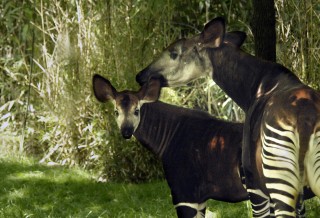WildView™
An Eye on Wildlife
Wildlife Conservation Society Menusearch for stories
- Browse Categories
- Art and Nature
- Assignments
- Bronx Zoo
- Crustaceans
- Education
- Environment
- Guanaco
- Herping from Home
- Horticulture
- In Memoriam
- New York Aquarium
- People
- Seasons
- Technology
- Throwback Thursday
- WCS 125th Anniversary
- WCS Chronicles
- Wild Places
- Wildlife
- Amphibians
- Antelope
- Arachnid
- Bats
- Bears
- Big Cats
- Birds
- Birds of Prey
- Bison
- Bovine
- Buffalo
- Canids, Dogs, Wolves
- Caribou
- Carnivores
- Cats
- Deer
- Dolphins
- Elephants
- Elk
- Endangered
- Fish
- Fox
- Giraffe
- Giraffes
- Great Apes
- Have No Fear
- Hippos
- Horses
- Insects
- Invertebrates
- Jellies
- Lemurs
- Mammals
- Marine Life
- Marsupials
- Mice and Rats
- Mongoose
- Monkeys
- Moose
- Muskoxen
- Ocean Giants
- Okapi
- Otters
- Pangolins
- Pigs
- Primates
- Rabbits, Hares, Pikas
- Rays
- Red Pandas
- Reptiles
- Rhinos
- Rodents
- Seals and Sea Lions
- Sharks
- Sheep and Goats
- Tapir
- Ungulates
- Walruses
- Wildlife
- Zebra
- Wildlife Health
subscribe

Peter M. Umunay
Yale University
Peter Umunay is a WCS fellow from the Democratic Republic of Congo. He received the Tellus Foundation scholarship through the WCS Graduate School Program in 2011 to pursue a higher level education in the US so that he can contribute to advanced conservation work. Growing up in a farming community in the DRC, studying for degrees in forest ecology (BS, MS), and forest and climate change (ongoing PhD), and working with various conservation organizations, Peter Umunay became aware of the ecosystem services of forests to support wildlife and livelihoods of millions of forest-dependent people, and the human activities that change forest ecosystems and organisms that depend upon them. His study is to quantify the impacts of human activities in forests and biodiversity so that conservation strategies and actions can be developed that help protect forest ecosystems such as okapi habitat.
